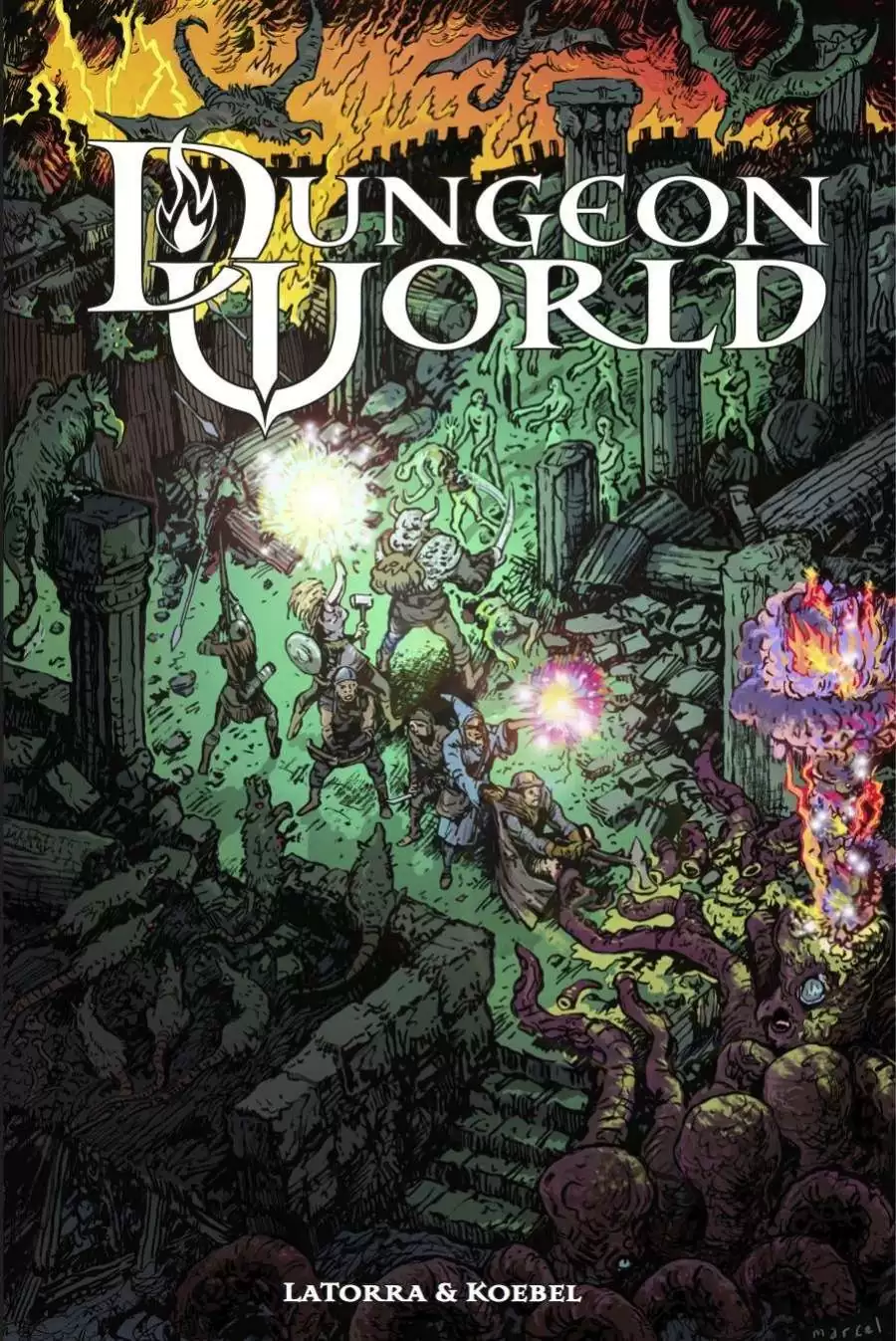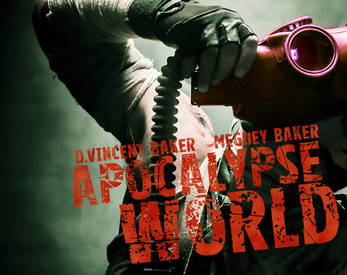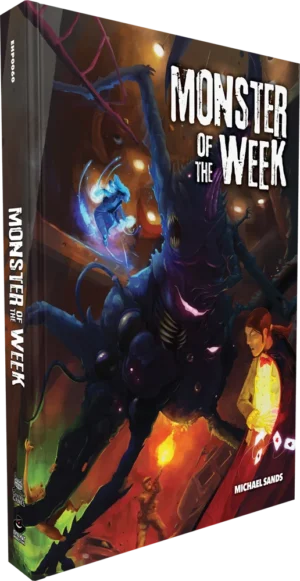Dungeon World Fantasy; High-Fantasy; Dark; Powered by the Apocalypse (PbtA); Narrative-Driven; Collaborative Worldbuilding; Character Customization
Dungeon World is a tabletop roleplaying game (TTRPG) that emphasizes narrative-driven gameplay and collaborative worldbuilding within a high-fantasy setting. It utilizes the Powered by the Apocalypse (PbtA) engine, focusing on player agency and cinematic action over strict rules adherence. While lauded for its accessibility and focus on storytelling, some critiques include its perceived limitations in character customization and static difficulty.
Theme and Setting
Dungeon World is set in a classic high-fantasy world filled with magic, gods, demons, and the eternal struggle between good and evil. The game encourages collaborative worldbuilding, where the Game Master (GM) draws maps and leaves blank spaces for the players to fill in during gameplay. This approach allows the setting to evolve organically based on the players' actions and choices. Brave heroes venture into dangerous corners of the land in search of gold and glory. The game captures the essence of classic fantasy adventures, such as exploring goblin holes and braving dragon lairs.
Core Mechanics and Rules
Dungeon World uses the Powered by the Apocalypse (PbtA) engine. The core mechanic revolves around rolling 2d6 and adding an appropriate ability modifier. A result of 10+ indicates a full success, 7-9 a partial success with complications, and 6 or less a failure, often with additional consequences introduced by the GM. These outcomes always drive the action forward in unexpected ways.
Actions in Dungeon World are called "moves." The game utilizes six ability scores: Strength, Dexterity, Constitution, Intelligence, Wisdom, and Charisma. Players choose from character classes such as Bard, Cleric, Fighter, Immolator, Paladin, Ranger, Thief, or Wizard, each with unique moves and abilities. To facilitate quick setup and represent character relationships, each class lists bonds that show how the characters see each other before the game starts, filling in the name of another player character in the blank space of each bond.
The game prioritizes narrative over strict rules. There are no distances given for anything, for starters, but combat also doesnât take place in strict turns. Rather, players can describe what their character does and can jump in when something happens. This allows for a more cinematic and engaging combat experience, where players can seamlessly transition between combat and non-combat elements.
What Makes it Unique
Dungeon World distinguishes itself through its emphasis on narrative collaboration and player agency. Its Powered by the Apocalypse engine promotes dynamic storytelling, where the GM and players work together to create the world and drive the plot forward. The "play to find out what happens" philosophy encourages improvisation and unexpected outcomes.
Unlike more traditional systems like D&D, Dungeon World minimizes preparation for the GM and encourages theater-of-the-mind combat. The game mechanics are designed to stay out of the way, allowing players to focus on describing their character's actions and interacting with the world. The partial success mechanic ensures that even when players fail a roll, the story continues to move forward in an interesting way.
Dungeon World also awards XP any time someone fails a roll, which provides a benefit even when one ends up rolling horribly during a session. Another unique feature is that characters select bonds during character creation, basically short narrative hooks that connect them to the other characters. At the end of each session, the GM checks with the characters to see if any bonds have been resolved. Resolving a bond results in the character(s) gaining XP.
Target Audience and Player Experience
Dungeon World is aimed at players who enjoy narrative-focused gameplay, collaborative storytelling, and a rules-light approach to tabletop roleplaying. It's often recommended for beginners due to its accessibility and emphasis on creativity over complex mechanics.
The player experience is characterized by a sense of agency and ownership over the story. Players are encouraged to contribute to the worldbuilding process and make choices that have a significant impact on the plot. The GM acts as a facilitator, guiding the story and introducing challenges, while the players drive the narrative forward.
However, some players may find Dungeon World's lack of character customization and static difficulty limiting. The game's reliance on player improvisation may also be challenging for those who prefer a more structured and tactical combat experience. One criticism found on Reddit points to the restriction of races to certain classes, the dictation of character looks, and the lack of alignment flexibility. Also, the static difficulty is a problem because a roll of 6 or less is always a failure, 7-9 is always a partial success, and 10+ is always a full success. There is no way for a GM to adjust those ranges for more difficult tasks.



